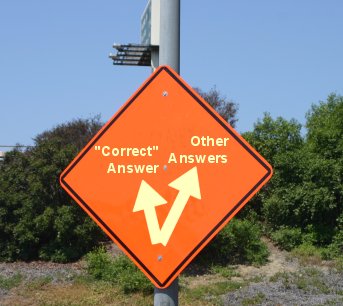As the New Year approaches I feel it is a good time to reflect on 2014 and all that I have done during the year. It is also time to start planning and to make my resolutions for 2015 and the year ahead.
So first of all the new year ends my sixth year in the middle east. This year I have attended 3 conferences in the GESS/GEF, Digital Education and Education Investment MENA conferences, presenting at 2 of them. My biggest reflection on these conferences is the lack of change in what is being presented, in what is being sold and on the reality on the ground. The conferences this year have felt very similar to previous conferences I have attended here in the Middle East in the five years previous. The messages presented in the key note speeches call for change including a need for personalisation of learning and for greater efforts to value creativity and to encourage student voice and leadership however this call is but an echo of the same call made in 2013, 2012, etc. The reality on the ground, in my opinion, is that little has changed. This being said I read similar calls for similar change on twitter from other parts of the world which suggests this is not an issue localised to the middle east. I believe this is an example of the fact that education is slow to change possibly as, as some people might say in defending traditional approaches, “we have done it this way for years”. My hope is that the calls for change must continue to be made and that they need to be echoed in greater numbers as each year passes but more than this we need ever increasing numbers of schools, school leaders, teachers and support staff to respond to the call for change and to do something about it, providing other schools a model to aspire to, or to inspire others towards action.
2014 saw me getting increasingly involved in using twitter, blogging, etc as I set out to build a bigger PLN and to share my ideas and thoughts but possibly more importantly on a personal note, for me to get ideas and views from others to help build and refine my understanding. Thinking back I think my plans for 2014 were grander with regards my PLN than that which I have achieved however this has very much been to do with studying for a Masters, ever demanding work issues and some personal trials and tribulations. I hope in 2015 to build on what I have done in 2014, including regular twitter use and involvement in various chats, regular blogging and possibly some videoblogs, however I do not necessarily expect to do more than this year, just to keep it regular and that brings me to my next point.
Work life balance! I have felt depressed over the last few days, as I have had some spare time on my hands. Having given some thought as to why this is the case, the conclusion I came to is that I am addicted to the fast paced work I do in providing consultancy services to schools and to my PLN, to twitter and my blogs and websites. All of this leaves little time for relaxing and for family. I have became that used to this pressure on my available time that when I have time I don’t know what to do with it and feel depressed as a result. My challenge for 2015 is to achieve a better balance, both for myself, for my family but also for my work as surely a more balanced and happy me will produce better outcomes.
2014 saw me develop a new data website for a project I work on requiring me to build on my understanding and skills with PHP, HTML, CSS and SQL. I very much enjoyed doing this so my hope in 2015 is to identify a programming project I can get my teeth into although in relation to the work life balance issue above, this is low priority and therefore is likely the first thing I will put on hold.
I think this year I also realized that I possibly haven’t reflected much on the fact that I have now been working in education within the Middle East for six years. During that time I have seen large scale changes introduced with some meeting with success where others met with lesser success. As such I plan to do some reflection over the coming year over what it means to be an expat educator and also to share some of my many experiences, some good and some not so good.

Sitting by the Burj Khalifa in Dubai writing this I realise that the above may focus on what I haven’t done in 2014 and what I will do in 2015 but I need to also recognize what I have done and have achieved in 2014. In 2014 I have supported 2 new schools in creating their IT strategies, infrastructure, hardware, software and services from pre-construction forward. One of these two schools has been built and now opened with equipment as specified while the other is due to be complete early in 2015 for opening in Feb/Mar. I have also developed a number of bespoke database systems under very short timeframes with constantly changing system requirements. I have supported a number of school leaders across a number of schools in leading school improvement including but not limited to technology projects. I have completed my masters programime while juggling many other tasks and requirements, both work and personally related. I have served as a conflict resolution specialist on two or three occasion where I have been required to act as an intermediary between schools and other professionals engaged in disagreement. I have delivered repeated very successful ICT Champions programmes to teachers from schools all over the UAE trying to encourage more uae teachers to engage in developing professional learning networks plus to question what they believe to be fact and/or the way things should be done. The ICT Champions programme within the UAE is definitely something I hope to build on during 2015.
In 2014 I feel I have achieved a lot however not as much as I would have liked, but then again I have, and will continue to have, high expectations. Although I have high expectations I need to temper this will a realistic viewpoint as to what is achievable given other constraints, as it is important to achieve balance in what has been done versus what I wanted to achieve but was unable to. As to 2015, I hope to build on this year, to do more of what matters, less of what doesn’t, to share and collaborate with others and above all to be true to myself in all I do.
Happy new year, all the best and may you meet with health and every happiness during 2015.

Image courtesy of hadkhanong at FreeDigitalPhotos.net
![]()





